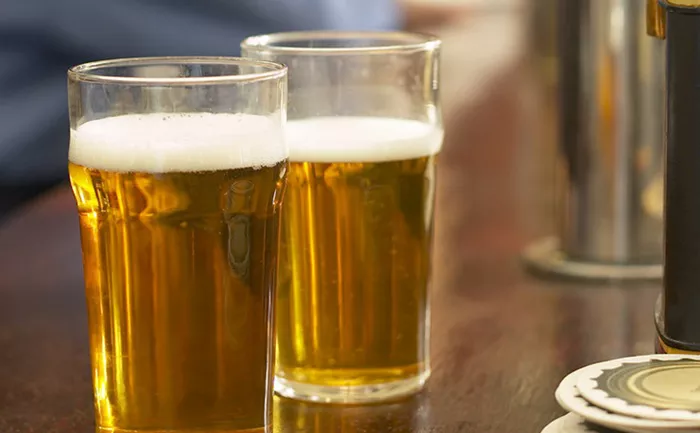The Beer Institute, a prominent trade group representing the U.S. brewing industry, has called on Congress to impose stricter regulations on hemp-derived intoxicants, including those containing delta-8 THC, a psychoactive compound. In a set of guiding principles released last week, the Institute outlined a series of recommendations designed to curb the rise of unregulated hemp-based products that have surged in popularity since the 2018 Farm Bill legalized hemp cultivation with specific THC limits.
The Beer Institute, which advocates on behalf of the brewing sector before lawmakers at the federal, state, and local levels, emphasized the need to close a “federal loophole” that allows the sale of hemp products containing synthetically derived THC. The organization argues that intoxicating hemp products differ significantly from alcoholic beverages, both in their effects and regulation, and therefore should be taxed at a higher rate. “Governments at all levels have consistently affirmed the different tax treatment between beer, wine, and hard liquor,” the Institute’s statement said. “Intoxicating hemp and cannabis products are fundamentally different than beer and the taxation of them by government entities should reflect these stark differences.”
The 2018 Farm Bill legalized hemp, a cannabis plant variant containing no more than 0.3% delta-9 THC. However, the bill did not address the rise of intoxicating products made from hemp-derived CBD, which includes delta-8 THC, a less potent but still psychoactive compound. Since then, the market for these products has expanded rapidly, with a growing number of states struggling to keep pace with regulations. Some states have moved to impose their own rules, while others lack clear guidance, leading to a patchwork of local laws.
While marijuana remains illegal federally, the legalization of hemp has created confusion around the legal status of delta-8 THC products. The Beer Institute, however, has taken no stance on marijuana’s legalization, instead deferring to voters, state legislatures, and Congress to decide. The group’s primary concern is the growing competition between alcohol and hemp-based products, which it sees as a direct threat to the beer industry.
To address these concerns, the Beer Institute’s proposals include the introduction of a federal excise tax on intoxicating hemp and cannabis products, with the tax rate set higher than that for any alcoholic beverage. The group also suggests that, if hemp products are legalized, they should not be sold alongside alcohol in the same retail outlets. “Intoxicating hemp and cannabis products, if legalized, should only be sold in dispensaries,” the guidelines state, further recommending that the sale of these products be restricted to separate retail spaces to avoid confusion among consumers.
Currently, delta-8 THC products are often sold in smoke shops, gas stations, and convenience stores—venues that also sell alcoholic beverages. This has led to direct competition between the two industries. According to the Beer Institute, nearly 20% of all sales in over 12,000 stores across the U.S. between January and July 2021 were from beer, cider, and malt beverages, with nonalcoholic beverages making up just 13.3% of sales.
The Beer Institute’s recommendations have drawn comparisons to historical “bootleggers and Baptists” coalitions—situations in which groups with opposing ideologies align to push for similar policies. In this case, while the beer industry is focused on limiting competition, proponents of stricter regulations argue that the proliferation of hemp-derived products presents real public health and safety concerns.
Earlier this year, for example, lawmakers in Florida introduced a bill to ban delta-8 THC products, which was later vetoed by Governor Ron DeSantis, who cited concerns about the impact on local businesses. Nonetheless, proponents of stricter regulation maintain that hemp-based products—unlike marijuana—are entering the marketplace without adequate quality control, creating confusion for consumers and uncertainty for businesses.
Despite the calls for federal intervention, the growing market for hemp-derived products underscores a larger issue: the need for consistent and clear regulations in an industry that is evolving rapidly. While the Beer Institute’s proposals focus on protecting its interests, the broader question remains: how should policymakers balance competition with public health and safety in an increasingly complex regulatory landscape?
As Congress continues to grapple with the issue, any legislative response to hemp-derived intoxicants will need to carefully consider both consumer safety and the realities of a competitive marketplace.
You Might Be Interested In:


